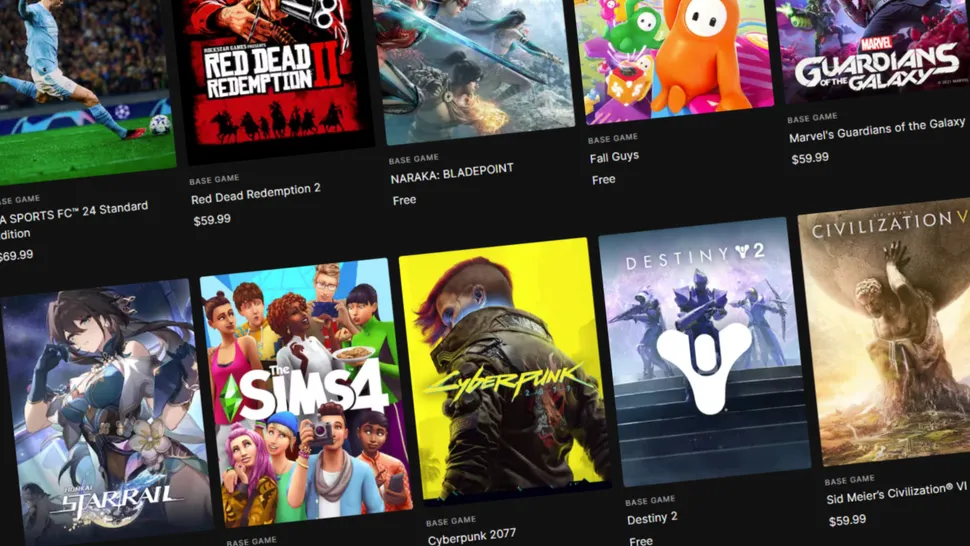In a legal confrontation that could have far-reaching implications for the digital marketplace, Epic Games, the creator of Fortnite and Unreal Engine, has launched a new offensive in its ongoing battle with tech giants. This time, Epic Games is accusing both Google and Samsung of conspiring to maintain their stranglehold on the Android app distribution ecosystem, blocking competition and ensuring their dominance. The allegation focuses on the two companies’ alleged efforts to stifle rival app stores, including Epic’s own distribution channels.
These fresh claims build on Epic’s broader legal struggles, where the gaming company has repeatedly challenged the operating policies of major tech firms, accusing them of monopolistic practices. The company’s recent lawsuit asserts that Google and Samsung worked in tandem to block rival app platforms, further complicating an already complex landscape of antitrust investigations into tech monopolies. With this latest accusation, Epic Games is adding another layer of scrutiny to Google’s practices, while also pulling Samsung into the legal fray.
The Origins of Epic’s Battle
The saga between Epic Games and tech companies began in August 2020 when Epic decided to bypass the Google Play and Apple App Store payment systems for its wildly popular game Fortnite. By implementing its own in-app payment system, Epic avoided the 30% commission charged by both Apple and Google on digital transactions. This move was short-lived, as Fortnite was swiftly removed from both app stores for violating their terms of service.
In response, Epic launched a high-profile legal battle, accusing both companies of anti-competitive practices and monopolistic control over their respective app ecosystems. Apple and Google, according to Epic, unfairly restrict developers by forcing them to use their payment systems, which take a hefty cut of all sales. This argument laid the groundwork for a prolonged legal war over what constitutes fair competition in the app market.
While Apple became the primary focus early on, Epic Games also pursued legal action against Google. Google’s Play Store, while not as tightly controlled as Apple’s App Store, also requires developers to use its billing system and imposes a similar 30% fee on in-app purchases. Google has defended this fee structure as a standard industry practice, necessary to maintain the security and reliability of apps on Android devices.
Epic’s New Allegations: A Coordinated Effort to Suppress Competition
Now, Epic Games is accusing Google and Samsung of colluding to limit competition further. The latest accusation centers on an alleged scheme where Google paid Samsung to limit the promotion and visibility of the Galaxy Store, Samsung’s proprietary app marketplace. Epic claims that Google financially incentivized Samsung to stifle rival app distribution platforms, including Epic’s own efforts to distribute apps directly to consumers.
At the heart of the matter is Samsung’s Galaxy Store, which serves as an alternative app store for Android devices. According to Epic, had Samsung fully embraced competition and given prominence to other app distribution platforms, it could have significantly altered the competitive landscape. Instead, Samsung allegedly took payments and incentives from Google in exchange for limiting the potential reach of rival platforms.
This alleged scheme, Epic argues, ensured that Google’s Play Store maintained its dominance as the primary distribution channel for Android apps. By effectively controlling the distribution of apps on the Android ecosystem, Google was able to maintain its 30% commission structure, limiting consumer choices and blocking the growth of third-party app stores. Epic contends that this behavior constitutes a violation of antitrust laws, specifically those designed to protect competition and prevent monopolistic practices.
The Role of Samsung’s Galaxy Store
Samsung’s Galaxy Store has long been a point of contention in the Android ecosystem. As the largest smartphone manufacturer globally, Samsung commands significant power within the Android market. The Galaxy Store offers an alternative to Google Play, providing users with access to apps that may not be available or promoted on Google’s platform. In theory, this should create competition and provide consumers with more choices.
However, Epic Games claims that Samsung’s Galaxy Store has never been positioned as a genuine competitor to Google Play. Epic’s allegations suggest that Samsung deliberately downplayed its store’s potential in exchange for financial benefits from Google. If these claims are true, it would mean that Samsung effectively helped Google maintain its monopoly over app distribution, rather than fostering competition.
In addition to Google’s alleged payments, Epic argues that Samsung has designed its store in such a way that it discourages users from exploring alternatives. For instance, the Galaxy Store is often not pre-installed on many Samsung devices, and even when it is, it tends to lack the visibility and promotion needed to compete with Google Play. Epic contends that these actions were deliberate, designed to keep Google Play as the dominant app marketplace.
Broader Implications for the Android Ecosystem
Epic’s accusations against Google and Samsung could have profound consequences for the Android ecosystem and app distribution at large. The heart of the issue lies in Google’s control over the Android operating system. While Android is an open-source platform, Google exerts substantial control over how apps are distributed, particularly through the Play Store.
Epic’s latest lawsuit challenges the notion that alternatives to the Play Store, like the Galaxy Store, are truly viable competitors. If Samsung was indeed financially incentivized to suppress its own app marketplace, it would suggest that Google has more control over the Android ecosystem than previously thought. This raises significant concerns about whether consumers are truly being offered a competitive marketplace.
Moreover, these accusations come at a time when regulators worldwide are scrutinizing the business practices of tech giants. In the U.S., Europe, and other jurisdictions, lawmakers have expressed growing concerns over the dominance of companies like Google, Apple, and Facebook. If Epic’s allegations are proven, it could add fuel to these regulatory fires, prompting new investigations into how app stores operate and whether reforms are necessary to ensure a fair competitive environment.
What This Means for Developers and Consumers
For developers, the outcome of Epic’s legal battles could shape the future of app distribution. Developers have long expressed frustration with the 30% commission charged by app stores like Google Play and Apple’s App Store. Smaller developers, in particular, struggle to absorb these fees, which can take a significant chunk out of their profits.
Epic’s legal fight is aimed at changing the way app stores operate, giving developers more options and freedom to distribute their apps. If Epic succeeds in its case against Google and Samsung, it could lead to changes that benefit smaller developers, potentially lowering fees and allowing for alternative payment methods. This could also open the door to more robust competition among app stores, which would force Google and others to innovate and offer better services to attract developers.
For consumers, the case highlights the importance of choice and competition in the digital marketplace. If app stores like the Galaxy Store were allowed to compete more freely with Google Play, consumers could benefit from lower prices, more diverse app options, and better services. The alleged scheme, if proven true, would suggest that Google and Samsung have worked to limit these choices, keeping prices high and innovation stifled.
Industry Reactions
The tech industry is closely watching the developments of Epic’s legal struggles. While neither Samsung nor Google has provided extensive public comments on the latest allegations, both companies have defended their business practices in the past. Google has consistently argued that its Play Store policies are fair and that the 30% commission is an industry-standard fee necessary for maintaining the platform’s security and functionality. Samsung has historically positioned itself as an advocate for consumer choice, though Epic’s allegations cast doubt on that narrative.
If the court sides with Epic, it could create a ripple effect across the industry. Other developers and companies that have felt constrained by the app store model may be emboldened to take legal action or lobby for regulatory changes. The case could also increase pressure on regulators to enact new antitrust laws aimed at breaking up monopolistic control over digital marketplaces.
The Future of App Distribution
Epic’s battle against Samsung and Google is more than just a legal spat over app distribution—it is a fight for the future of the digital economy. As apps become more central to the way consumers interact with digital services, the control over app marketplaces has become a crucial issue. The outcome of this case could determine whether a few tech giants continue to dominate app distribution, or if a more open, competitive market can emerge.
With the case still in its early stages, it remains to be seen how the courts will rule. However, one thing is clear: the stakes are incredibly high, not just for Epic Games but for the entire tech ecosystem. The legal proceedings could reshape how apps are distributed, sold, and monetized, potentially leading to a more diverse and competitive digital marketplace. As Epic Games pushes forward with its lawsuit, the entire industry is bracing for what could be a monumental shift in the app economy.





